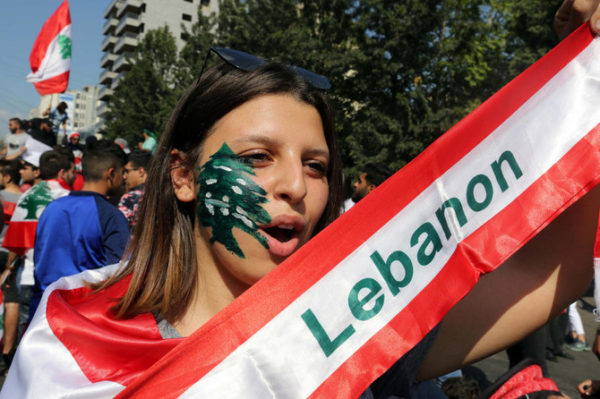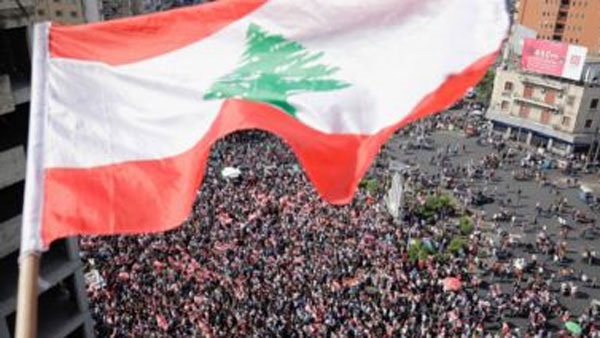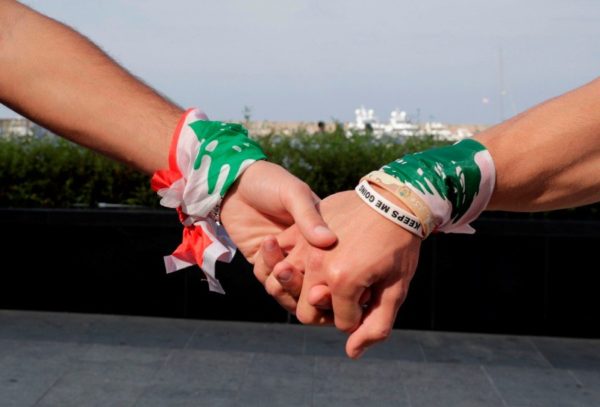
The days ahead will not be easy, and my greatest hope is that violent forces will not once again divert the course of Lebanon’s history.
When I was born in Lebanon, my parents named me Amal – meaning ‘hope’ – as they wished for better days in their war-torn country. That was more than four decades ago, and I have never had greater hope for my country of birth than I do today.
Because for the first time, I see people rallying around an idea, instead of a religion, party or sect. I watch a united population espouse a common vision for change based on dignity and equal opportunity. I hear excitement in the voice of my father, whose love for his country is palpable to anyone who knows him. And emotion in the voice of my brother, cousins and friends who have taken to the streets and report that ‘all of Lebanon is there’.
For too long, the Lebanese people have lived in a system that entrenches their differences. They have been let down by leaders who have abused public office for private gain. One government after another has failed to provide services as basic as electricity, safe water, decent infrastructure, and clean streets. Change has long been overdue.
 I have been to Lebanon many times. But it only takes one visit to observe the stark disconnect between the government’s performance and the country’s potential. The Economist recently reported that Lebanon is ‘almost a caricature of poor governance’; and its economy is collapsing. It could be so different if only the country’s resources were harnessed, and its people’s talent unlocked. The Lebanese are not asking for a leg-up: they just need to be set free.
I have been to Lebanon many times. But it only takes one visit to observe the stark disconnect between the government’s performance and the country’s potential. The Economist recently reported that Lebanon is ‘almost a caricature of poor governance’; and its economy is collapsing. It could be so different if only the country’s resources were harnessed, and its people’s talent unlocked. The Lebanese are not asking for a leg-up: they just need to be set free.
This is of true of many countries in which leaders are taking too much and giving back too little. But in Lebanon corruption also goes hand in hand with a system of sectarianism that has long stunted its growth. This system has allowed war criminals to be promoted instead of being put on trial. It has oppressed Lebanese women, who have their fundamental rights determined by religious judges instead of independent courts. And it has led the most ambitious young talent to pursue their dreams abroad.
Thirteen years ago I left a job in New York to live in Lebanon for the first time since I was a baby. I did so because the United Nations set up an investigation into terrorist attacks that killed the country’s Prime Minister and other democratic leaders including the editor of this newspaper ( An Nahar) . I saw this as a unique chance for Lebanon to move away from a system in which it was commonplace to murder political opponents without consequence. So I spent two years living in a UN compound on top of a mountain, moving in armoured cars and under heavy security. I thought it would be worth it if we could help to import the rule of law. And our work did trigger a trial. But now I know that systemic change can only come from within.

That’s why what is happening today is so significant. This is a moment when Lebanese people, with a united front, are making it clear that they will no longer tolerate being manipulated, cheated, and lied to. They will not allow tribal leaders to pit them against one another on false pretences. When they are now told that the protests are the work of foreign powers, they do not believe it. They know this movement is theirs.
I watch proudly as Lebanon’s youth lead the charge to build a better country; and women show their determination to be catalysts of change. As people chant together, dance, and link arms. Not just people from one community, one party, one sect; but all Lebanese, standing shoulder to shoulder to say enough is enough.
The days ahead will not be easy, and my greatest hope is that violent forces will not once again divert the course of Lebanon’s history. Its people deserve better than that. I believe we are witnessing a beautiful moment in the transformation of a beautiful country. There should be no going back.
Amal Clooney (Alamuddin) is a Lebanese-British barrister at Doughty Street Chambers, specialising in international law and human rights. In 2019, Clooney was appointed the special envoy on media freedom by the British Foreign and Commonwealth Office.
Source: An Nahar

Leave a Reply
You must be logged in to post a comment.